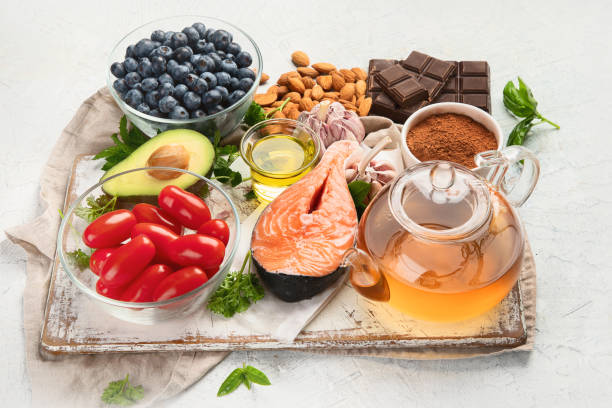
How Certain Foods Can Help Reduce Stress and Anxiety
Share
In today’s fast-paced world, stress and anxiety have become common challenges for many people. While lifestyle changes and mindfulness practices play a role in managing stress, what we eat can also have a significant impact on our mental well-being. Certain foods contain nutrients that help regulate mood, reduce stress hormones, and promote relaxation. In this article, we’ll explore how specific foods can help combat stress and anxiety, making your diet a natural ally in emotional well-being.
Omega-3 Rich Foods for Brain Health
Omega-3 fatty acids, found in fatty fish like salmon, sardines, and walnuts, are essential for brain function and mental health. Studies suggest that omega-3s can help reduce symptoms of anxiety and depression by lowering inflammation and regulating neurotransmitter activity. Adding these foods to your diet can support a calmer, more balanced state of mind.
Magnesium-Packed Foods for Relaxation
Magnesium plays a vital role in muscle relaxation and stress reduction. Foods such as spinach, almonds, pumpkin seeds, and dark chocolate are rich in magnesium and help calm the nervous system. A deficiency in magnesium has been linked to increased stress and anxiety, so incorporating these foods can help maintain a sense of relaxation and balance.
Probiotic-Rich Foods for Gut-Brain Connection
The gut and brain are closely connected, and a healthy gut can contribute to improved mental health. Probiotic-rich foods like yogurt, kimchi, sauerkraut, and kefir support the gut microbiome, which in turn influences mood-regulating neurotransmitters like serotonin. By nourishing your gut, you may also experience a reduction in stress levels.
Herbal Teas and Hydrating Foods for Calmness
Hydration is key to managing stress, and certain herbal teas such as chamomile, green tea, and lavender tea contain calming properties. Green tea, in particular, contains L-theanine, an amino acid that promotes relaxation and reduces anxiety. Additionally, staying hydrated with water-rich foods like cucumbers, watermelon, and oranges can help maintain cognitive clarity and emotional stability.
Complex Carbohydrates for Steady Energy
Whole grains, quinoa, sweet potatoes, and legumes are complex carbohydrates that promote the production of serotonin, the “feel-good” neurotransmitter. Unlike refined sugars that cause energy crashes and mood swings, complex carbohydrates provide steady energy, helping to regulate mood and reduce stress levels throughout the day.
The connection between food and mental well-being is powerful. By incorporating stress-reducing foods such as omega-3-rich fish, magnesium-packed greens, probiotics, herbal teas, and complex carbohydrates, you can naturally support your body’s ability to handle stress and anxiety. While food alone isn’t a cure-all, it plays an essential role in maintaining emotional balance. Making mindful dietary choices can be a simple yet effective way to enhance overall well-being and resilience against stress.
Get more knowledge about eating healthy, please refer to The Anti-Inflammatory Kitchen.
